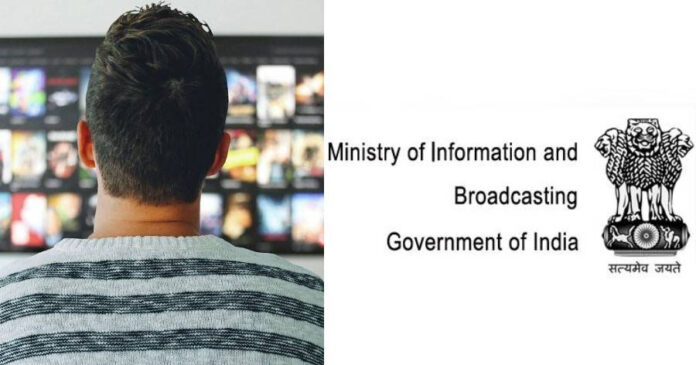NEW DELHI, Mar 14
Taking action on digital platforms promoting obscene and vulgar content, the Centre has blocked 18 OTT platforms, 19 websites, 10 apps (7 on Google Play Store, 3 on Apple App Store), and 57 social media accounts in India. Some of these platforms have also been serving pornographic contents to the viewers.
The action against the platforms serving obscene content has been taken after repeated warning from Information & Broadcasting minister Anurag Thakur to not indulge in such acts under the guise of “creative expression”, the government said in a press release. Which platforms and apps feature on the list? Out of the 18 banned OTT apps, one app amassed more than 1 crore downloads, with two others having over 50 lakh downloads on the Google Play Store. These OTT platforms have also utilised social media to disseminate trailers, scenes, and external links. The social media accounts had a cumulative followership of over 32 lakh users.
The contents listed on the OTT platforms was found to be prima facie violation of Section 67 and 67A of the IT Act, Section 292 of the IPC, and Section 4 of the Indecent Representation of Women (Prohibition) Act, 1986. “A significant portion of the content hosted on these platforms was found to be obscene, vulgar, and portrayed women in a demeaning manner. It depicted nudity and sexual acts in various inappropriate contexts, such as relationships between teachers and students, incestuous family relationships, etc. The content included sexual innuendos and, in some instances, prolonged segments of pornographic and sexually explicit scenes devoid of any thematic or societal relevance.” “The Government of India remains committed to fostering the growth and development of the OTT industry. Several measures have been undertaken in this regard, including the introduction of the Inaugural OTT Award for Web Series at the 54th International Film Festival of India, collaboration with OTT platforms in the media and entertainment sector, and the establishment of a light touch regulatory framework with an emphasis on self-regulation under the IT Rules, 2021.”



























